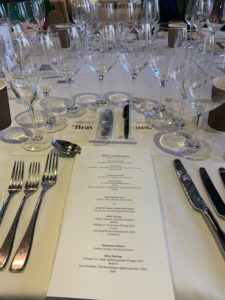
My Wines of Germany menu demonstrated the versatility of Riesling.
I know many Ontarians who say they hate Riesling. To me, it’s like saying you hate fish.
“What fish? Sushi? Octopus? Salmon? Tuna sandwiches? Fish sticks? Seriously—you hate all fish?”
“Ontario Riesling is too sweet!” is the complaint I hear most from local dissenters of the aromatic white wine. (Try that same off-dry bottle with spicy Thai cuisine, though, and I bet you’ll feel differently.) But it’s not like there’s one traditional Riesling taste. It can be made in a variety of ways: anywhere from bone dry to almost sappy sweet. And it’s a chameleon, taking on its unique terroir as much as any wine grape out there.
For every sip of flabby, cloying Riesling that may have turned you off this variety, there’s twice the amount of dry, high-acid, refreshing juice to be experienced. It’s one of the reasons that most wine experts are Riesling fans: After a long day of sampling high-alcohol, full-bodied wines, nothing whet’s their appetite quite like a palate-cleansing, mouth-watering, racy, dry Riesling.
And, generally speaking, nobody does this hugely food-friendly wine better than Germany, where they’ve been growing the grape for well over 500 years.
I got another reminder of the potential quality of Riesling at a Wines of Germany event earlier this summer at Arcadian Loft in Toronto, with Master Sommeliers John Szabo and Jennifer Huether on hand.
What makes German Riesling so unique? “The perfume is unlike any other perfume,” says Szabo. “You don’t find it in Ontario, Australia’s Clare Valley or anywhere else in the world.”

The steep slopes and snaking rivers of many German wine regions provide striking wine-growing venues, including this turn of the Rhine in the Rheingau region.
Szabo also points to the combination of the aged vines and the soils of such stellar Riesling regions as the Mosel Valley, Rheingau and Pfalz, “but mostly it’s the length of the growing season,” he explains. “For me it’s enough time to accumulate all these amazing aromas without accumulating alcohol and sugar, while still retaining acidity. You can have a Riesling at 8% alcohol with an explosive aromatic profile.”
Another part of the appeal is this grape’s food-matching flexibility. At the Wines of Germany event, we enjoyed a pairing with—of all things—lamb, with the herbal notes of an excellent 2018 Leitz Berg Rottland Riesling playing perfectly with the thyme seasoning of the lamb. (Huether, incidentally, is a big fan of Riesling with chick peas.)
ONTARIO CONNECTIONS
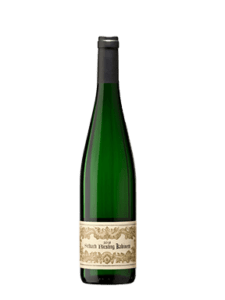 Yes, there are also bad Rieslings made in Germany, but considering its overriding consistent quality, there is a surprising number of very affordable bottles to be had. I’m a big fan of the 2019 Selbach Saar Kabinett Riesling—$24.99 from Noble Estates (one case minimum). It’s grown from 70-year-old vines in the Mosel region of northwest Germany. (Kabinett, incidentally, is a lighter style of Riesling and tends to feature a tangy acidity and mineral streak.)
Yes, there are also bad Rieslings made in Germany, but considering its overriding consistent quality, there is a surprising number of very affordable bottles to be had. I’m a big fan of the 2019 Selbach Saar Kabinett Riesling—$24.99 from Noble Estates (one case minimum). It’s grown from 70-year-old vines in the Mosel region of northwest Germany. (Kabinett, incidentally, is a lighter style of Riesling and tends to feature a tangy acidity and mineral streak.)
I’m also a fan of the St. Urbans-Hof Old Vines ($19.75) and Peter Nicolay Bernkasteler Badstube Riesling Kabinett ($24.95) at the LCBO.
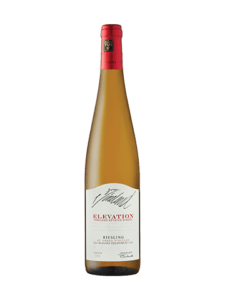 Ontario has its own German connections, none bigger than at Vineland Estates, where some of the province’s oldest Riesling vines were planted by the winery’s founder, Hermann Weis, who brought the vines in from St. Urbans-Hof in Germany’s Mosel region in 1979. Today, Vineland’s St. Urban Elevation Riesling ($22.95) remains one of the better values you can find in Ontario.
Ontario has its own German connections, none bigger than at Vineland Estates, where some of the province’s oldest Riesling vines were planted by the winery’s founder, Hermann Weis, who brought the vines in from St. Urbans-Hof in Germany’s Mosel region in 1979. Today, Vineland’s St. Urban Elevation Riesling ($22.95) remains one of the better values you can find in Ontario.
And expect the quality of the winery’s Riesling offerings to only increase, if Assistant Winemaker Tobias Fiebrandt has anything to say about it.

Vineland Estates’ Assistant Winemaker Tobias Fiebrandt.
“Vineland is the cradle of Riesling in Canada. We’re certainly happy to have the old vines, which helps to naturally reduce the quantity we have to harvest per vine and give us the extract that a new vineyard would not. But the most important thing is (head winemaker Brian Schmidt’s) obsession with quality there,” says Fiebrandt, who doubles as the export manager for Germany’s Leitz Winery.
Fiebrandt, though, did not seek out Vineland for its connection to his native land—rather, he arrived by coincidence.
“On my last day in Germany, after deciding to leave for a time and come to Canada, I met a friend in a supermarket parking lot, and he said. ‘My dad has a cork company in Canada. Let me know if you need a contact.’ Brian used to be a sales person for that same cork company. We got put in contact. It took two years for everything to align—for Brian to have a job opening and me to be looking for a new adventure. That was four and a half years ago.”
What does Fiebrandt bring to the table? “A lot of love and focus for Riesling. Brian’s greatest passion is Cab Franc. For me, coming from Germany, Riesling was in my blood. It went together seamlessly.”
EVERYTHING IN BALANCE
And how does Fiebrandt respond to people who say Riesling is too sweet?
“I would always encourage them to try our wines, because our focus is on balance. The number of grams of sugar you read on the label doesn’t matter if you have the acidity, if you have the balance—then it is fun to drink. I want you to drink the first glass and immediately think of chilling the second bottle.”
Personally, it’s that consistent balance that traditionally separates German Riesling from others. Even if the sugar content reads high, it’s as though part of the winemaking process involved a charge of 1,000 volts into each vat. There’s an electricity with great Rieslings that makes you drool at the same time you’re savouring an elaborate aroma and palate of citrus and tropical fruits.
But if you are looking to cut down on the sweetness, watch for the five classifications on the label:
Trocken (dry): (0-4 grams per litre of residual sugar)
Halbtrocken (half-dry): (Up to 18 g/L of residual sugar)
Feinherb (off-dry): (An unofficial—but increasingly popular—designation between semi-dry and semi-sweet)
Lieblich (semi-sweet): (From 18 to 45 g/L of residual sugar)
Suß (sweet): (Beyond 45 g/L)
(For more info about German wine, check out this post: thelushlife.ca german wine).

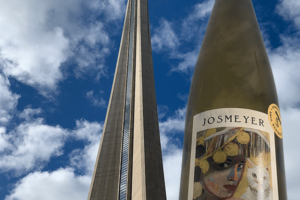
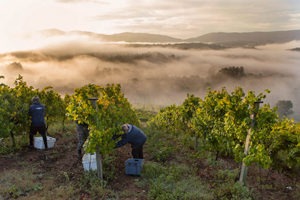
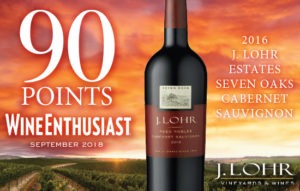
Leave a Reply
Your email is safe with us.